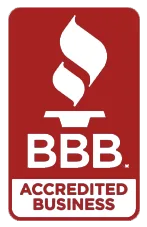Step 1: Deciding to Sell Your Home
Deciding on an Appropriate Time Frame
Evaluating Your Finances and Creating Your Budget
Collecting Key Documents
Step 2: Finding Professional Representation
The next step to selling your home is finding an experienced real estate professional to help you get the most for your home. Given your time is valuable, using professional representation can add significant value to your home-selling process. Our agents will provide helpful advice to make your home look great, command multiple offers, and sell quickly. Our agents are trained and experienced to ensure your closing process runs smoothly. Our agents represent some of the best professionals in the residential space and we invite you to learn more about them below.
Step 3: Establishing the List Price
The list price you set for your home will be a very important factor in determining not only how much your home sells for, but also how long your home will stay on the market. It is very important to consult with your real estate professional about recent sales in your area when determining the optimal price point for your home. There are many factors that determine how much you will get for your home including market conditions, home competition, interest rates, physical condition, and the home’s location/qualities.
Step 4: Preparing Your Home
Furniture Removal
Simplistic Declutter
Decluttering space helps sell homes. Decluttering kitchen cabinets and simplifying bathroom countertops or garage space helps show attention to detail.
Detailed Cleanup
After all preparations, furniture removal, and decluttering has taken place, have your home professionally cleaned just prior to listing. Hiring a cleaning crew to make sure surfaces, floors, and windows are clean shows great attention to detail. Other small details include making sure doors do not stick and door locks latch smoothly.
Focused Staging
Professional Photography
Step 5: Marketing Your Home
Benefits of Marketing Your Home with an Agent
There are many benefits to using an experienced agent in helping to sell your home. While the below list is a sample of benefits, many local agents will provide a number of specialized services well beyond the following items. Experienced real estate professionals are able to:
- Provide preparation plans.
- Recommend items to repair and/or replace.
- Professionally stage your home to appeal to the masses.
- Hire a professional photographer.
- List your home on the local Multiple Listing Service (MLS) and make sure it receives maximum exposure.
- Market your home to all company agents.
- Connect with all other brokers and agents who work with buyers in the area.
- Seek and respond to market feedback from potential buyers to improve your listing.
- Conduct an open house to draw attention to your home.
- Professionally negotiate the business terms of the sale without emotion.
- Guide you through all closing steps and paperwork requirements.
- Create online real-estate tours with Cinemagraphs, Social Tools, Lead Capture, and Custom Video.
Step 6: Showing Your Home
- Leave fresh vacuum lines in the carpet.
- Turn on all lights including lamps – allows interested parties to immediately look at the space and not fumble for light switches.
- Leave closet doors slightly open to invite potential buyers to walk into all rooms. Make sure they do not miss a room you want them to see.
- Invite a buyer to sit down on the couch and watch TV by turning on music and letting them relax.
- Leave a movie theater turned on with a movie playing and/or popcorn set out.
- Make sure to leave the home 15-20 minutes prior to the showing time.
- Remove or safely secure valuables, medications, and other important items.
- Avoid setting an alarm. The simpler the showing instructions for the buying agent, the better.
Market Feedback
You spent years living in your home and many hours and money getting it ready for sale. It is time to request and review market feedback after showings. Your professional agent will likely use a showing service that enables showing agents to provide feedback directly to you. If multiple potential buyers comment about a similar item, room, distraction, or challenge, try to address or mitigate those items quickly. It is important to modify and adapt your home to continue attracting as many interested parties as quickly as possible.
Step 7: Negotiating Offers
The Counter Offer
Negotiating offers can result in one of three situations from a seller: approving and accepting all terms, declining an offer, or submitting a counter offer (also known as declining the original offer). Your real estate professional can give you advice on how to negotiate the terms and where to be firm or open to compromise in an effort to maximize your goals.
Step 8: Closing
Documentation
- The executed sales contract.
- Mortgage payoff details.
- Forwarding address and new contact information.
- Private information including social security numbers.
- Homeowner Association/Condo Association information.
- Existing survey.
- Seller’s disclosure.
Closing Date
- A valid and unexpired photo ID.
- Certified funds via cashier’s check, if anything is owed.
- Bank account information or voided check for electronic wire of remaining sale proceeds.
- Appropriate selling parties on the contract shall go to the title company in person, unless an acceptable Power of Attorney has been signed by one party to the other as approved by both lender and title company, or a mobile closing or mail out closing is taking place.










